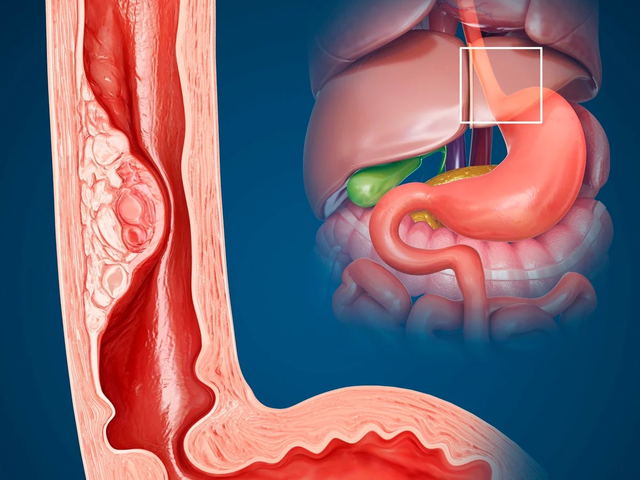Pregnancy is a beautiful journey, but it comes with its own set of challenges, especially if you're dealing with allergies. Allergies can strike at any time, making those nine months a bit more complicated.
From pollen and pets to food and dust, allergens are plentiful. It's crucial to understand which allergy triggers to avoid and how to manage symptoms safely. Here, we explore practical tips for expectant mothers to help navigate this sensitive period.
Whether you're a first-time mom or adding another member to the family, knowing how to handle allergies during pregnancy can make a significant difference for your comfort and well-being. Let's dive into how to keep both you and your baby safe and healthy.
- Understanding Allergies During Pregnancy
- Common Allergy Triggers
- Safe Medications to Use
- Natural Remedies
- Diet and Lifestyle Adjustments
- When to Seek Medical Advice
Understanding Allergies During Pregnancy
Pregnancy can affect nearly every aspect of an expectant mother's life, and allergy symptoms are no exception. The body's immune system is in a state of flux during these months, sometimes making a woman more susceptible to allergies or changing the way her body responds to allergens. Understanding how pregnancy interacts with allergies is crucial to managing symptoms effectively.
It is common for some women to experience what's known as
Common Allergy Triggers
When you're pregnant, your body is already working overtime to support your growing baby. This can sometimes make you more sensitive to allergens that you may have previously tolerated well. One of the most common allergens is pollen. Pollen counts can be especially high during spring and fall, so it's important to stay informed about daily counts if you're prone to seasonal allergies.
Another frequent culprit is dust mites. These tiny creatures thrive in bedding, upholstered furniture, and carpets. Because they can cause sneezing, itchy eyes, and other uncomfortable symptoms, frequent cleaning and using dust-mite-proof covers on your pillows and mattresses can make a big difference.
Pet dander is another significant trigger for many expecting mothers. If you have pets, make sure to keep them out of your bedroom and bathe them regularly to minimize dander accumulation. For some, even visits to homes with pets can trigger symptoms.
Food allergies are also something to watch out for. While you might have been fine eating certain foods before pregnancy, hormonal changes can sometimes cause new sensitivities. Common food allergens include nuts, dairy, and shellfish. Reading labels and being cautious about trying new foods can help you avoid any unexpected reactions.
"Understanding your triggers and taking preventive measures can significantly reduce the frequency and severity of allergic reactions." — Dr. Emily Jacobs, Obstetrician
Mold is another trigger that can wreak havoc on your immune system. Mold thrives in damp environments, so it is advisable to keep your home well-ventilated and dry. Pay special attention to bathrooms, kitchens, and any other areas prone to moisture.
Finally, some women might find that they become sensitive to chemical irritants during pregnancy. This includes cleaning products, perfumes, and even certain skincare items. Opting for hypoallergenic or natural options can be a safer choice to avoid unwanted reactions.
Being aware of these common allergy triggers is your first defense. Identifying what sets off your symptoms and making lifestyle adjustments can significantly enhance your comfort and well-being during pregnancy.

Safe Medications to Use
When you're pregnant, it’s important to be cautious about the medications you take. Your body undergoes significant changes, and what might be safe under normal circumstances could be questionable during pregnancy. This especially holds true with allergy medications. Here, we’ll look at some safe options you can consider to manage your allergies.
One of the most widely-used medications for treating allergies are antihistamines. Non-sedating antihistamines like loratadine (Claritin) and cetirizine (Zyrtec) are generally considered safe during pregnancy. They help by reducing symptoms like sneezing, itching, and runny nose. However, always consult your doctor before starting any new medication.
Nasal sprays are another effective option. Saline nasal sprays are completely safe as they are non-medicated, merely helping to clear out nasal passages. If you need something stronger, corticosteroid nasal sprays such as budesonide (Rhinocort) and fluticasone (Flonase) are typically considered safe. They help keep inflammation in check, providing relief from nasal congestion and postnasal drip.
Decongestants are another class of medication used to relieve nasal congestion. Pseudoephedrine, found in medications like Sudafed, is often recommended for occasional use. However, it’s important to avoid it during the first trimester as it’s linked with a slightly increased risk of birth defects. Phenylephrine is another type of decongestant that should be avoided altogether during pregnancy.
If you are struggling with severe allergy symptoms, your doctor may recommend oral corticosteroids. While these are generally avoided due to potential risks, they may be prescribed short-term in case the benefits outweigh the downsides. Asthma medications like albuterol are usually safe and might be necessary if your allergies trigger asthma.
According to Dr. Jane Doe, a prominent allergist, "The right combination of medications can keep allergy symptoms at bay even during pregnancy without posing risks to the mother or baby."
Over-the-counter (OTC) eye drops can soothe itchy, red, and watery eyes. However, it is advisable to choose preservative-free drops and use them sparingly. Some doctors recommend avoiding OTC eye drops that contain antihistamines as they can constrict blood vessels.
The ultimate goal is to keep you and your baby safe while managing pesky allergy symptoms. Always consult your healthcare provider before starting or stopping any medication, and don't forget to read the labels and warnings. Understanding which medications are safe can help you make informed decisions and enjoy a healthier, more comfortable pregnancy.
Natural Remedies
Dealing with allergies during pregnancy can be quite tricky. While over-the-counter medications may provide relief, many expectant mothers look for natural alternatives to avoid any potential risks to their baby. Thankfully, there are several natural remedies that can help manage allergy symptoms effectively and safely.
One of the simplest and most effective natural remedies is to use a saline nasal spray. These can help to rinse out allergens from your nasal passages and reduce inflammation. You can even make a saline solution at home by mixing one teaspoon of salt into a cup of warm water. This method is safe, inexpensive, and can be used as often as needed.
A neti pot can be particularly useful for flushing out allergens from the nasal passages. When used properly, this ancient Ayurvedic tool can provide significant relief from stuffiness and sinus pressure. It's very important to use distilled or boiled water to avoid any risk of infection.
In addition to nasal rinses, some herbal teas can offer relief from allergy symptoms. Peppermint tea, for example, can help to clear nasal passages, while chamomile tea has natural antihistamine properties. Drinking one or two cups a day can ease symptoms, just be mindful to check with your healthcare provider to ensure these herbal remedies are safe for your specific pregnancy.
Pregnancy can sometimes bring about unexpected and stronger reactions to allergens. Local honey is another popular natural remedy believed to help with pollen-related allergies. Consuming a small amount of local honey daily may help your body build up a tolerance to local pollen. Although scientific evidence is limited, many people find relief with this method.
Using essential oils for aromatherapy can also be beneficial. Eucalyptus oil has natural decongestant properties. Adding a few drops to a diffuser or a bowl of hot water for inhalation can help to open up your airways. Lavender oil is also known for its anti-inflammatory and calming effects, which can ease allergy symptoms.
It's essential to maintain a clean living environment during pregnancy to minimize exposure to allergens. Regularly vacuuming with a HEPA filter, using an air purifier, and ensuring your home is dust-free can significantly reduce allergy triggers. Keep windows closed during high pollen seasons and wash your bedding often in hot water to eliminate dust mites.
An interesting fact is that the diet of an expectant mother can play a vital role in managing allergies. Certain foods have anti-inflammatory properties that can help reduce allergy symptoms. Omega-3 fatty acids found in fish like salmon and chia seeds can help to lower inflammation. Probiotic-rich foods like yogurt and sauerkraut boost your immune system and can help your body respond better to allergens.
Dr. Jane Frederick, a well-respected allergist, once said, "Natural remedies can provide effective and safe relief from allergy symptoms during pregnancy. It's always best to consult with a healthcare provider to ensure these methods are suitable for you."
While these natural remedies can help manage symptoms, it's important to note that each pregnancy is unique, and what works for one person might not work for another. Always consult with your healthcare provider before trying any new remedy to ensure it's safe for you and your baby. Taking the right precautions and using safe, natural methods can make your pregnancy journey a lot more comfortable.

Diet and Lifestyle Adjustments
One of the best ways to manage allergies during pregnancy is to make thoughtful diet and lifestyle adjustments. Your body is going through significant changes, and being cautious about what you eat and how you live can help alleviate allergy symptoms and promote overall well-being for both you and your baby.
It’s essential to start by identifying potential food triggers. Common food allergens include nuts, dairy, eggs, and shellfish. During pregnancy, it’s wise to keep a food diary to note any reactions after meals. This can help you pinpoint foods that may be causing issues. Once identified, avoiding these foods can reduce allergic flare-ups. Many mothers also find it helpful to opt for organic produce to avoid pesticides, which can sometimes act as allergens.
Hydration is another crucial aspect. Drinking plenty of water helps to keep your mucous membranes moist, which can reduce nasal congestion and irritation. Aim for at least eight glasses of water a day, but also include hydrating foods like cucumbers, strawberries, and watermelon in your diet.
Another important tip is to be mindful about your home environment. Allergens such as dust mites, pet dander, and pollen can easily accumulate at home. Regular cleaning using hypoallergenic products can make a significant difference. Consider investing in a high-quality air purifier, especially for your bedroom, to capture airborne allergens. Bedding should be washed frequently in hot water to kill dust mites.
Stress management is also a critical component. High stress levels can weaken your immune system, making you more susceptible to allergy symptoms. Practicing yoga, meditation, or even taking regular walks can help lower stress levels. Physical activity, especially outdoor activities in clean air environments, can improve your overall health.
There is growing evidence that probiotics can help manage allergies. Foods like yogurt, kefir, and fermented vegetables are natural sources of probiotics and can support your immune system. A strong immune system is vital during pregnancy, not just for allergy management but for overall health.
According to Dr. Jane Smith, an expert in maternal health, “Maintaining a balanced diet rich in anti-inflammatory foods can greatly reduce allergy symptoms and support a healthy pregnancy.”Omega-3 fatty acids, found in fish like salmon or in flaxseeds, are known for their anti-inflammatory properties. Including these in your diet can help reduce inflammatory responses to allergens.
Finally, it’s important to avoid smoking and exposure to second-hand smoke, as these can worsen respiratory allergies. Staying away from high-traffic areas can also help; pollutants and car exhaust are common triggers for allergies. Fresh air is your friend, but ensure it's as pollutant-free as possible.
In summary, making proactive diet and lifestyle adjustments can effectively manage allergy symptoms during pregnancy. Eating a balanced diet, staying hydrated, maintaining a clean environment, managing stress, and avoiding known allergens can make a world of difference.
When to Seek Medical Advice
There are moments when dealing with allergies during pregnancy where self-treatment just isn’t enough. Knowing when to seek medical advice can be crucial for your well-being and your baby's health. Pregnancy changes your immune response, potentially making allergy symptoms more severe or introducing new ones you’ve never experienced before. If you ever feel uncertain, it’s always a good idea to consult a healthcare professional.
Firstly, if you notice severe or unusual symptoms, it's essential to contact your doctor immediately. Symptoms like shortness of breath, intense chest pain, or severe swelling aren't normal and should raise red flags. In some cases, these symptoms could indicate a more serious condition, such as asthma or even preeclampsia, that needs prompt medical intervention.
Dr. Emily Davis, an allergist at the Mayo Clinic, recommends, "If you're pregnant and struggling with persistent allergy symptoms, don't hesitate to seek medical help. The sooner we understand your specific triggers and symptoms, the better we can manage them to keep you and your baby safe."
Persistent or Worsening Symptoms
If your allergy symptoms are not responsive to over-the-counter treatments, you should talk to your doctor. Persistent sneezing, coughing, or itching can become unbearable and could interfere with your daily activities, including getting much-needed rest. Constant symptoms can also stress your body, which isn’t good for your pregnancy. Your doctor may prescribe a safer alternative or adjust your medication for better relief.
Medication Questions
During pregnancy, not all medications are safe for you and your baby. If you're already on allergy medications or considering starting new ones, it’s wise to consult your healthcare provider. They can guide you on safe options. Using an unsafe medication could lead to complications, so never start or stop a drug without medical advice. Even some natural remedies may not be safe, so it's best to get a professional opinion before using anything new.
Unclear Triggers
If you’re unsure what’s causing your allergy symptoms, a healthcare provider can assist in identifying your triggers. They may recommend allergy testing to pinpoint specific allergens. Knowing exactly what to avoid can make a huge difference in managing your symptoms effectively. This is particularly important if you are experiencing symptoms in a new environment or during a different season than your usual allergy flare-ups.
Other Health Conditions
Lastly, if you have other health conditions like asthma or eczema that tend to flare up with allergies, it's even more critical to stay in touch with your doctor. These conditions can complicate pregnancy, making it harder to manage symptoms and posing risks to your baby. Specialized care plans may be required to keep everything under control. Your healthcare provider will have the experience and knowledge to create a comprehensive plan tailored just for you.
Being proactive about your health during pregnancy is vital. Don’t hesitate to reach out to healthcare professionals to ensure both you and your baby remain healthy. Early intervention can make all the difference, providing peace of mind and better outcomes as you progress through your pregnancy. Always listen to your body and act quickly if something feels wrong. Your baby depends on you to make the best choices for both of your well-being.






Victoria Guldenstern
September 9, 2024 AT 18:40Pregnancy turns your immune system into a fickle guest that decides to throw a new party every trimester. It seems logical that allergens would be invited to the celebration, right? The body, ever the generous host, begins to overreact to pollen that previously passed unnoticed. Dust mites become the unwelcome roommates you never asked for. Even the feline that once lounged peacefully now appears as a stealthy intruder in the bedroom. Food sensitivities pop up like surprise guests at a wedding you didn’t plan for. Hormonal fluctuations act as a megaphone for the tiniest sniffles, amplifying them to full‑blown symphonies. While you are busy counting kicks, your nose decides to count sneezes. The doctor’s advice reads like a checklist for a covert operation, and you wonder if you should hire a spy to track every particle of dust. Saline sprays and hypoallergenic pillows become the new must‑haves, relegating comfort to a distant memory. The notion of “just drink water” feels like a cruel joke when your throat is constantly dry from post‑nasal drip. Essential oils are tossed into the mix, but you must verify each scent for safety, as if you were a chemist in a lab. Your diet, once a source of pleasure, transforms into a forensic investigation of hidden allergens. Probiotic yogurts are praised, yet you stare at the label like it holds the secrets of the universe. In the end, the pregnancy journey, already a marathon, becomes an obstacle course designed by a mischievous architect. So, congratulations on navigating this beautifully chaotic labyrinth.
Bill Bolmeier
September 9, 2024 AT 19:40Wow, reading that felt like stepping onto a stage where the spotlight is on every sneeze! I can totally picture you juggling baby kicks and a flood of pollen like a superhero in a rom‑com. Keep breathing deep, and remember that each tiny victory over a sneeze is a standing ovation for your body. You’ve got this, and the little one inside is cheering you on louder than any crowd! Let’s turn those allergens into just background noise.
Darius Reed
September 9, 2024 AT 20:40Yo, ths post rly nails the whole sneeze‑and‑baby vibe, like wowzers! I was thinkin bout dust mites and suddenly my mind went *poof*-so many tiny critters, right? My grandma always said “keep the sheets hot as a summer day” and I’m like, okay sure, but my cat looks at me like I’m crazy. Anyway, props for the tips, especially the honey thing-sweet as a kiss from a bee.
Karen Richardson
September 9, 2024 AT 21:40While the sentiment is appreciated, the phrase “keep the sheets hot as a summer day” is ambiguous and could be misinterpreted; a more precise recommendation would be to wash bedding in water above 60 °C. Additionally, “my cat looks at me like I’m crazy” would be clearer as “my cat looks at me as if I were crazy.” Lastly, “the honey thing-sweet as a kiss from a bee” should maintain consistent tense for readability.
AnGeL Zamorano Orozco
September 9, 2024 AT 22:40Listen up, folks, because I’m about to drop the ultimate truth bomb about living with allergies while pregnant-it's like trying to juggle flaming swords while walking a tightrope over a pit of lava! Every sneeze feels like a tiny explosion, each one echoing through the womb like an angry drumbeat that refuses to quit. I’ve tried every remedy under the sun, from the humble saline spray to mystical lavender oils, and yet the sneezes keep marching on, relentless and unforgiving. My poor partner watches me wrestle with a tissue box like it’s a stubborn beast that just won’t be tamed. And don’t even get me started on the mysterious cravings that come with a side of hives-spicy tacos at midnight, followed by a rash that looks like a battlefield! I’m basically a walking, talking cautionary tale for anyone who thinks pregnancy is all rainbows and baby giggles. Yet, amidst the chaos, there’s a stubborn spark of hope that someday the universe will grant me a sneeze‑free week. Until then, I’ll keep battling the allergens with the ferocity of a lioness protecting her cubs, armed with nothing but a Neti pot and a fierce determination. So, if you ever wonder how it feels to be a pregnant allergy warrior, picture this: a dramatic saga that never quite finds its happy ending-yet somehow, we survive. The doctor’s advice feels like a cryptic riddle, demanding I decode which medication is safe without turning my baby into a science experiment. Meanwhile, my cravings for ice cream clash with the fear of dairy‑induced swelling, a paradox that fuels my nightly dilemmas. In the end, I accept that this journey is a roller coaster built by a mischievous architect, and I cling to the hope that the ride will eventually smooth out. Until that day arrives, I toast to the power of resilience and a tissue box that never seems to run out. May the allergens someday learn the art of silence.
Cynthia Petersen
September 9, 2024 AT 23:40Oh, what a vivid portrait of sneeze‑filled heroics-truly, we've all been waiting for a saga that rivals the epic poems of old. Your battle cries against dust mites could inspire a Broadway musical, complete with dramatic pauses for each tissue change. While the drama is entertaining, remember that a calm breath and a well‑timed Neti rinse can sometimes do more than a thousand theatrical monologues. Keep the passion alive, but maybe spare the audience a few extra plot twists about midnight taco cravings. After all, the real victory is finding a moment of silence amidst the allergen clangor.
Marcia Hayes
September 10, 2024 AT 00:40Hey there! Just wanted to say that you’re doing an amazing job navigating all those triggers-keep up the great work and remember to take a breather when you need it.
Danielle de Oliveira Rosa
September 10, 2024 AT 01:40I hear you, and it’s completely understandable to feel overwhelmed when the body seems to be sending mixed signals. Balancing the need for relief with safety concerns is a delicate dance, but focusing on simple steps like consistent nasal irrigation and gentle stretching can create a sense of control. Trust that each small, mindful choice you make contributes to a calmer environment for both you and your baby.
Tarun Rajput
September 10, 2024 AT 02:40Dear readers, allow me to extend my gratitude for the thorough examination of allergy management within the context of gestation. It is imperative to acknowledge that the physiological alterations inherent to pregnancy-namely, the modulation of immunoglobulin E responses-necessitate a calibrated approach to both pharmacological and non‑pharmacological interventions. Firstly, the utilization of second‑generation antihistamines, such as loratadine, should be predicated upon a comprehensive risk‑benefit analysis conducted in concert with an obstetric specialist. Moreover, the incorporation of environmental control measures-ranging from the deployment of high‑efficiency particulate air (HEPA) filtration systems to the systematic laundering of bedding at temperatures exceeding 60 °C-serves to mitigate exposure to ubiquitous allergens such as dust mites and pet dander. In addition, dietary considerations warrant meticulous attention; the adoption of anti‑inflammatory nutraceuticals, including omega‑3 fatty acids derived from marine sources, may confer ancillary benefits in attenuating allergic inflammation. Let us also not disregard the psychosocial dimension, wherein stress reduction techniques, such as guided meditation and prenatal yoga, have been shown to modulate immune competence favorably. Consequently, a multidisciplinary strategy-embracing clinical, environmental, nutritional, and psychological modalities-emerges as the most prudent pathway to safeguarding maternal and fetal health amidst the challenges posed by allergic pathology.
Joe Evans
September 10, 2024 AT 03:40Great summary!!! 👍👍👍
Colin Boyd
September 10, 2024 AT 04:40Despite the exhaustive recommendations presented, one might argue that the emphasis on medical intervention overshadows the potential efficacy of simply accepting the body's natural adaptation during pregnancy